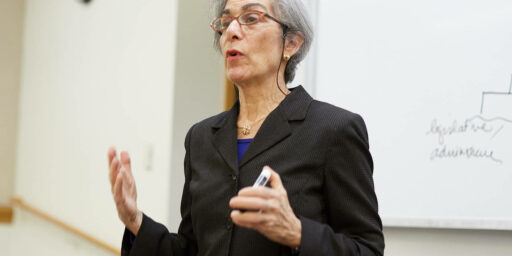Digital Native Myth
The idea that students raised in the Information Age are therefore savvy about information is a dangerous but pervasive myth.
Indiana University professor and Director of Emerging Technologies Sarah Smith-Robbins makes an important point:
Underpinning a disdain for social media in higher education is the assumption that incoming students already have an inherent aptitude for new technologies. Students in Professor Smith-Robbins’s class kept running into a strange obstacle at their various internships. Many of them were born after 1992, right at the beginning of the popularization of the Internet, and their employers, executives at Fortune 500 companies, believed the students inherently understood social media.
Terms like “digital native” (those born during or after the introduction of digital technology — computer, Internet, etc. — and have an assumed greater understanding of how technology works because they’ve been using digital technology their entire lives) and “digital immigrant” (those born before this introduction and have had to adapt and adopt the technology at a later point in life) have been bandied around by experts and marketers as ways of classifying and differentiating between generations, and, more importantly, the expectations of those who fall into either category.
Professor Vorvoreanu pointedly declares these terms a myth. “It’s a myth that’s harmed this current generation,” she said. “And the way it has harmed them is because it has stopped educators from teaching what they need to teach. It has scared educators into thinking students know more than us. God forbid we learn something from our students. And, so, we assumed these kids already know, and we don’t teach them. And we expect them to know things and we grade them; we evaluate them; we hire them based on what we think, we assume, they know. And they don’t. How would you know this stuff if no one ever bothered to point it out to you that this is something you should be learning, because everyone assumes you already know?”
Another set of issues stemming from the notions of “digital native” is the lack of critical literacy. Since students of the Digital Age have not had to acclimate to this sweeping change from analog to digital and are assumed to possess some innate technological knowledge based solely on the year they were born, they don’t necessarily have to acclimate to the sheer velocity of recent innovations.
“We have on our hands the last generation of educators who do remember life before these tools, and so therefore, we have an opportunity to teach some critical literacy that these students may not get otherwise; this generation may not get otherwise,” Smith-Robbins says.
It’s true that kids from all but the most disadvantaged backgrounds are exposed to technology early. My 2-1/2 year old can play games on my iPhone, manipulate her toy laptop computer (and, alas, the real thing if not supervised) and more-or-less operate a television remote control. But that doesn’t mean that today’s college freshmen have any more of a clue of how to differentiate useful information from garbage than our generation did in the 1980s.







Interesting.
Although I’m a programmer, I really don’t let my kids (both under 7 years) spend much time playing on the computer. Or the TV, for that matter. While I understand there can be some educational value there, and am slightly worried that they may be missing out on some necessary knowledge of technology, I’d still rather have them play like kids have been playing for most of the last few million years.
So yeah, my kids might not know everything that college professors expect, although I’d hope to have taught them how to separate important from non-important stuff by then.
That is interesting, and I suppose it could impact at a “developmental” level. It was certainly easier to give kids K-12 a textbook with “agreed history,” and they could pretty much learn it free from cognitive conflict. Heck, when they went to the library they pretty much found an agreed framework.
Once you had that under your belt, you’d hit college and discover it wasn’t quite that simple. You’d discover that things had been simplified for you.
We might need now to teach search and judgement earlier … too early?
Actually my digital native (14 now, online more or less from birth) is brilliant at determining true from false — in the area of his greatest interest: technology. Any time there’s an MSM story about Google, let’s say, he provides a much more in-depth and nuanced view taken from tech blogs, Reddit, Twitter and so on. And he generally has it all 24 hours before the story itself is published.
It’s obviously possible to transfer that critical ability to other fields but it would require that same level of devotion and love-of-topic. So I don’t imagine I’ll be getting the inside dope on the world of dance any time soon.
I see something similar here. There are people who are brilliant with critical understanding of numbers, for example, and rather doltish when taking those skills over to philosophy or culture. I think that developing critical thinking is almost a subject-by-subject ability, not general but specific, and limited to areas of deep interest.
BTW, Mr. Reynolds, I believe it was you among others who said awhile back on a different subject that kids needed some grounding in philosophy. I was never given this opportunity when I was young, so I was wondering if you knew of a good introductory book appropriate for a 6-year-old who’s a pretty good reader for his age.
@Franklin:
Interesting question. I have an odd one for a younger age, maybe: Yertle the Turtle by Dr. Seuss. One of the greatest books ever written about tyranny and the power of the individual.
If he were a little older, (9 up, I’d say) maybe I’d push him toward the ANIMORPHS series I co-authored with my wife. It’s all action and drama on the surface but as the series went on we dealt with the just war concept, individual vs. society, the nature of truth, a hierarchy of morals, all kinds of things snuck in there between action scenes — a fact attested to by an awful lot of letters from kids who are in college now who write and say things like, “Hey! You tricked me into thinking about philosophy. Thanks.”
I think at age six though you just keep them reading. Reading about absurdity is a great way to start thinking about epistemology. Alice in Wonderland comes to mind. Also Roald Dahl books like The Twits come to mind. But job #1 is always to let them read what they like. We lose way too many kids who are given “good for you” books.